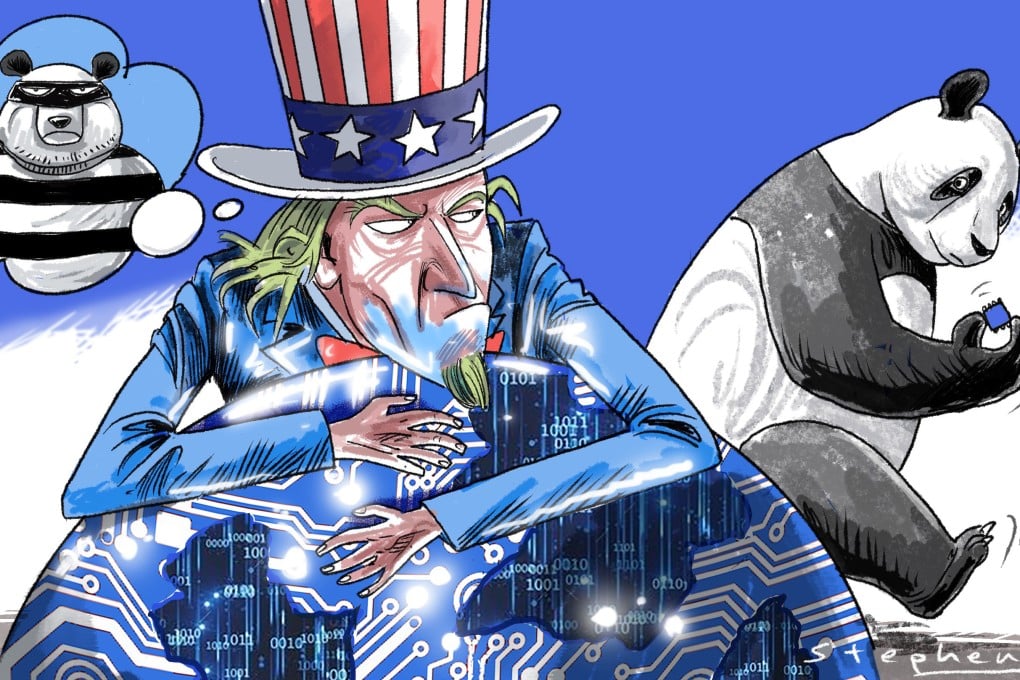Opinion | Why the US is painting China as the big bad tech villain
- Washington’s accusations are clearly driven more by its fear of the US losing its tech hegemony than by China overtaking it

In a story that took place in the Jin dynasty (266-420), an old woman was robbed. A young man came to her rescue and chased down the robber, who turned around and accused him of being the thief instead. It was late and dark and the old woman could only look from one to the other, confused. Washington, these days, appears to be acting just like the thief, trying to turn things upside down by pointing a finger at others.
For a start, Washington accuses China of seeking world domination. US Secretary of State Antony Blinken has said, in response to an interview question, that “I think that what it [China] seeks is to be the dominant power in the world militarily, economically, diplomatically.”
Given China’s heavy dependence on imported chips and vulnerability to external factors, it’s not, by any standards, on course to dominate the global chip industry.
